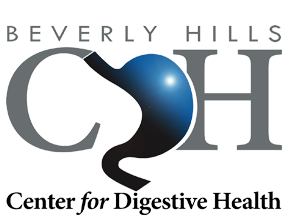Indigestion and How to Deal with It Before Treatment
BOOK APPOINTMENT7 Tips for Treating Indigestion at Home
The best way to deal with indigestion at home is to prevent it. Making some minor changes in your life could make a major difference in your digestive health as well as reducing the risk of other GI conditions.
Eat Healthier
Greasy or fatty foods are known for causing indigestion. That’s because they stay in your stomach longer than other foods, triggering indigestion. They can also relax the muscle that keeps acid from leaking into your esophagus, causing heartburn.
Eating large meals can also cause indigestion. It may help to eat five small meals per day instead of three larger meals.
Avoid Carbonation
Your drink choices can also trigger indigestion. Carbonated drinks make you burp because they contain carbon dioxide. Any gas you don’t burp out moves into your intestines, making you feel bloated and uncomfortable. Beer, soft drinks, even carbonated water can irritate your belly. Try noncarbonated water or juices instead.
Track Your Triggers
Many foods can trigger indigestion. You may have already figured out some of your triggers, but others may be harder to pinpoint.
You may be able to identify triggers by keeping a food and symptom diary.
Address Your Stress
Our body’s stress response slows down bodily functions that don’t help us fight or escape from stressors – including digestion. Slow digestion keeps food in your stomach for longer than it should be. Managing stress using techniques like meditation or counseling can help prevent indigestion.
Keep Moving
Regular exercise promotes healthy digestion, but there’s a catch. Vigorous exercise, like running, can also trigger heartburn. If that’s the case, consider changing your workout or waiting several hours after eating before you exercise.
Check Your Use of NSAIDs
Some medications for pain or inflammation, called nonsteroidal anti-inflammatory drugs (NSAIDs), can irritate your digestive system. Some are over-the-counter medications, like ibuprofen, and others are prescription medications. If you’re taking NSAIDs and having indigestion, ask your doctor about other options.
Quit Smoking
The nicotine in tobacco relaxes the muscle that keeps stomach contents from leaking into your esophagus and causing heartburn. Quitting smoking can help your body do its job better, keeping irritating stomach contents where they belong.
Sometimes, there’s more going on in your digestive tract than lifestyle changes or antacids can handle. If you’re not getting relief from indigestion, it may be time to talk to a doctor.
Additional Readings About GI Conditions:
Our Blogs
Accurate Diagnostics for Anorectal Strength and Function
Back to BlogsAre you having problems producing healthy bowel movements? The problem may be the muscles around your digestive tract either not coordinating properly or lacking strength. To get your GI problems addressed as soon as possible, visit the Beverly Hills...
Pelvic Floor Dysfunction?
Back to BlogsPelvic floor dysfunction is the inability to relax and coordinate your pelvic floor muscles to allow for smooth defecation. Fortunately, there are treatments available, including biofeedback, medications, and physical therapy. Reclaim strength and comfort...
Cutting-Edge, Compassionate Care Can Help You Find Hemorrhoids Relief
Back to BlogsHemorrhoids can be debilitating and painful, but treatment is available. If you’re suffering from hemorrhoids, make an appointment at the Beverly Hills Center for Digestive Health. We offer cutting-edge, compassionate care to help you find hemorrhoids...
Call to Schedule
Our office is available to answer your questions and evaluate your symptoms.

Phone
(310) 855-0222
Fax: (949) 404-6467
Hours
Mon - Fri: 9am – 5pm
Sat - Sun: Closed